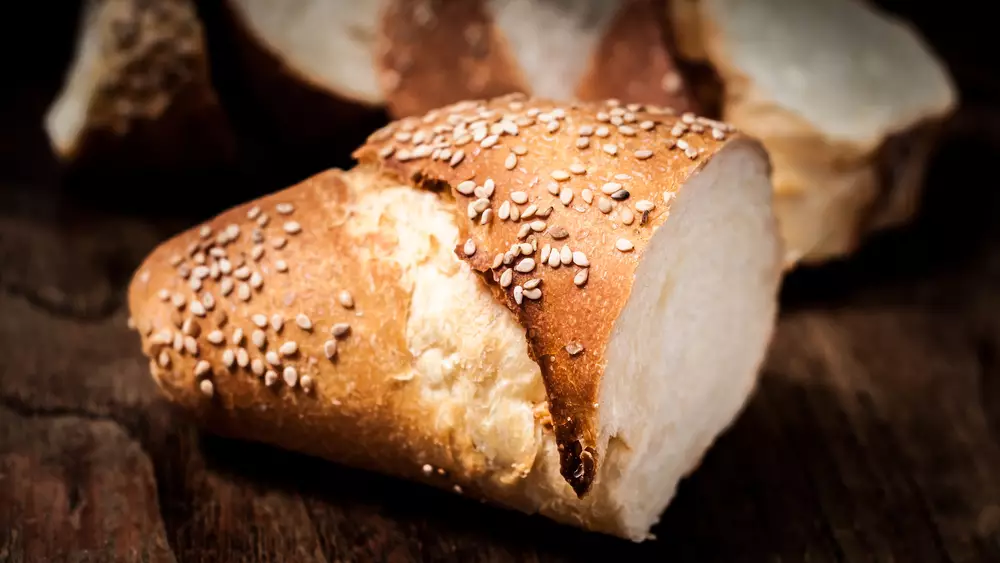Have you ever noticed an unusual alcohol-like aroma wafting from your freshly baked bread and wondered what could be causing it?
In this article, we will explore the science behind this phenomenon, help you understand how it affects your bread’s quality, and provide tips to prevent it from happening.
We’ll explore the fermentation process, the role of yeast, and the various factors that can contribute to this peculiar phenomenon.
So, let’s dive in and uncover the reasons behind the alcohol smell in your bread and how you can ensure that your homemade loaves are both delicious and aromatic in the right way.
The Science of Bread Fermentation
Bread fermentation is a process in which yeast and bacteria break down complex carbohydrates, like starches and sugars, into simpler compounds.
This process releases carbon dioxide gas, which causes the bread to rise and develop its characteristic fluffy texture.
The fermentation process also produces other byproducts, like alcohol, which can contribute to the unique smell of your bread.
Yeast and the Role It Plays
Yeast is a crucial ingredient in bread making, as it helps the dough rise and gives it structure. Yeast is a living organism that consumes sugars found in the dough, producing carbon dioxide and alcohol as byproducts.
This fermentation process is what causes the dough to rise, as the gas bubbles become trapped within the gluten network.
How Alcohol is Produced in Bread
The alcohol produced during fermentation is a natural byproduct of yeast activity. As yeast consumes the sugars in the dough, it produces ethanol and carbon dioxide.
While most of the alcohol evaporates during the baking process, a small amount may remain, which can sometimes result in an alcohol-like smell.
Factors Affecting the Alcohol Smell
Several factors can influence the alcohol smell in your bread, including:
Fermentation time: Over-fermenting or proofing the dough for too long can lead to an increased production of alcohol.
Yeast quantity: Using too much yeast can speed up the fermentation process, resulting in a stronger alcohol smell.
Temperature: Warmer temperatures can cause yeast to be more active, leading to increased alcohol production.

Impact on Bread Quality and Taste
The presence of alcohol in your bread may affect its overall quality and taste. While a mild alcohol smell is generally harmless and not noticeable once the bread is baked, a strong smell may indicate over-fermentation or other issues that could impact the bread’s texture and flavor.
How to Prevent the Alcohol Smell
To prevent the alcohol smell in your bread, follow these tips:
- Use the recommended amount of yeast in your recipe.
- Control the proofing time and temperature according to your recipe’s guidelines.
- Ensure proper ventilation during baking to allow alcohol to evaporate.
Sourdough vs. Commercial Yeast
Sourdough bread relies on wild yeast and lactic acid bacteria for fermentation. Sourdough bread relies on wild yeast and lactic acid bacteria for fermentation, which imparts a unique flavor profile to the bread.
Commercial yeast, on the other hand, is a specific strain of yeast cultivated for consistent performance in baking.
While both types of yeast produce alcohol during fermentation, sourdough bread typically has a more complex flavor profile, including a tangy taste, due to the presence of lactic acid bacteria. This can sometimes mask the alcohol smell in sourdough bread.
Alternative Bread Making Techniques
If you’re looking for alternative ways to make bread that minimize the alcohol smell, consider the following options:
- No-knead bread: This method requires a longer fermentation time at a cooler temperature, which can result in less alcohol production.
- Quick breads: These breads rely on chemical leavening agents like baking powder or baking soda, instead of yeast, to rise. Since there’s no fermentation involved, there is no alcohol smell.
Storing Bread to Minimize Alcohol Smell
Proper storage can help minimize the alcohol smell in your bread. To store your bread effectively:
- Allow the bread to cool completely on a wire rack before storing it, as this allows any residual alcohol to evaporate.
- Store the bread in a breathable container, like a paper bag or a bread box, to prevent trapping any alcohol odors.
- Avoid storing bread in plastic bags, as they can trap moisture and odors.
When to Discard Bread with an Alcohol Smell
In most cases, a mild alcohol smell in your bread is harmless and will dissipate during the baking or cooling process.
However, if the smell is overpowering or accompanied by an off taste, it may indicate over-fermentation, spoilage, or contamination.
In such cases, it’s best to discard the bread and identify the cause of the issue before attempting to bake again.
Frequently Asked Questions
Q: Is it safe to eat bread that smells like alcohol?
A: In most cases, it is safe to eat bread with a mild alcohol smell, as it is a natural byproduct of the fermentation process. However, if the smell is overpowering or accompanied by an off taste, it may indicate spoilage or contamination, and you should discard the bread.
Q: Why is the alcohol smell stronger in some types of bread?
A: The strength of the alcohol smell in bread can vary depending on factors such as fermentation time, yeast quantity, and temperature.
Different types of bread may also have varying fermentation processes and ingredients, which can influence the smell.
Q: Can I use less yeast to reduce the alcohol smell in my bread?
A: Reducing the amount of yeast in your bread recipe may help minimize the alcohol smell. However, it’s essential to follow the recommended yeast quantity in your recipe to ensure proper rising and texture.
In Summary
The alcohol smell in bread is a natural byproduct of yeast fermentation. Factors such as fermentation time, yeast quantity, and temperature can influence the strength of the alcohol smell.
To minimize the smell, follow proper bread-making techniques and store your bread correctly. In most cases, a mild alcohol smell is harmless and will dissipate during the baking or cooling process.
However, if the smell is overpowering or accompanied by an off taste, it’s best to discard the bread and address the underlying issue.

